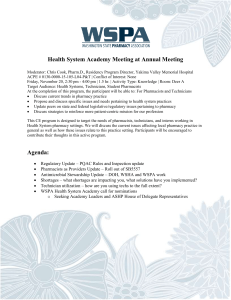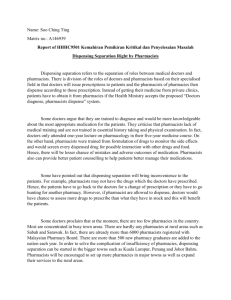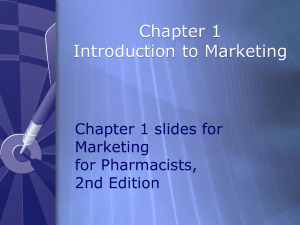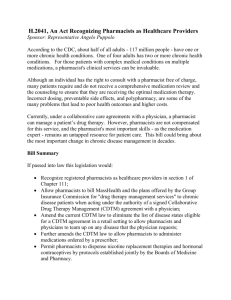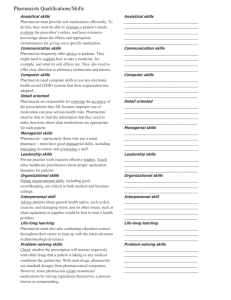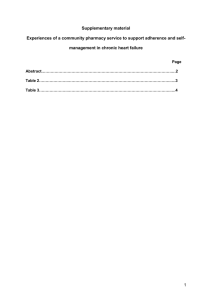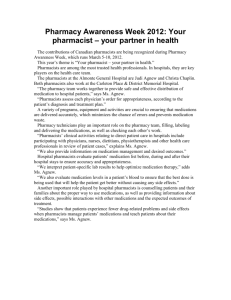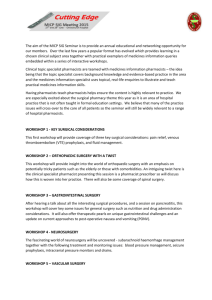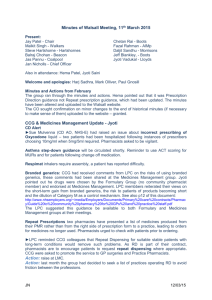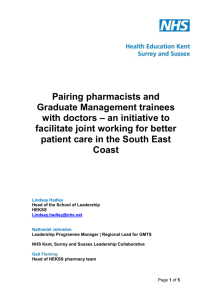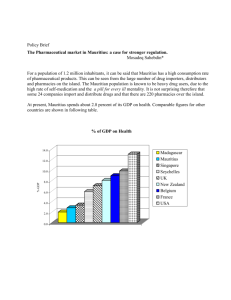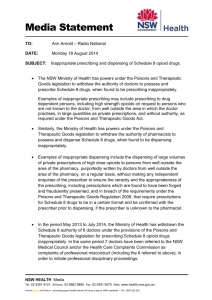Reflective writing
advertisement
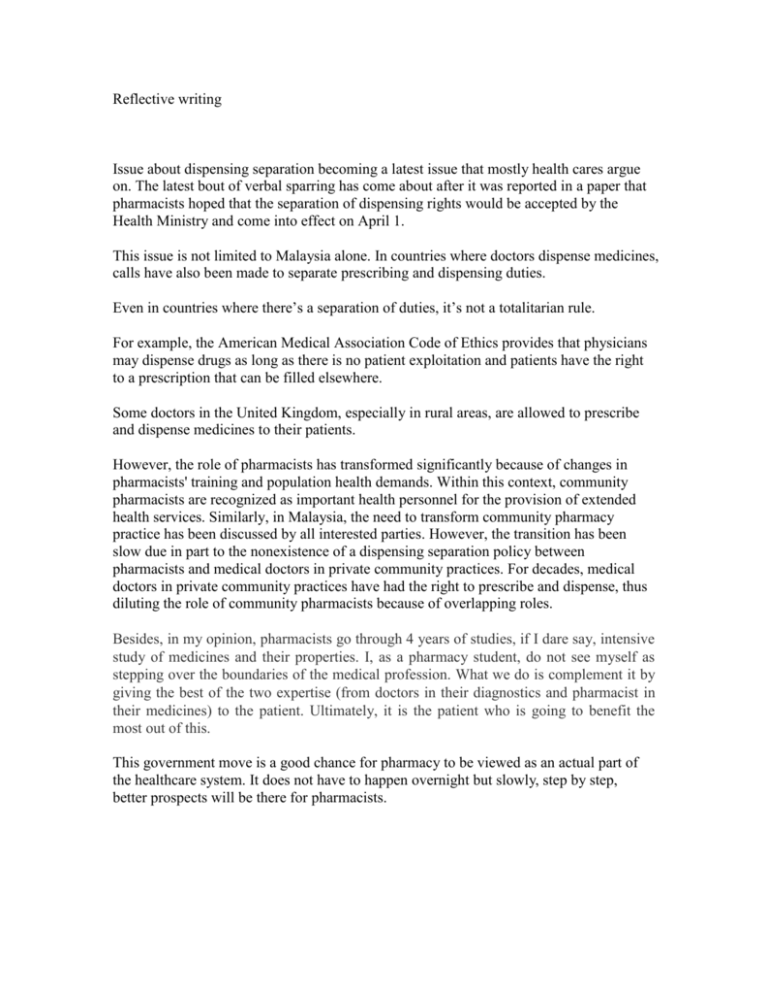
Reflective writing Issue about dispensing separation becoming a latest issue that mostly health cares argue on. The latest bout of verbal sparring has come about after it was reported in a paper that pharmacists hoped that the separation of dispensing rights would be accepted by the Health Ministry and come into effect on April 1. This issue is not limited to Malaysia alone. In countries where doctors dispense medicines, calls have also been made to separate prescribing and dispensing duties. Even in countries where there’s a separation of duties, it’s not a totalitarian rule. For example, the American Medical Association Code of Ethics provides that physicians may dispense drugs as long as there is no patient exploitation and patients have the right to a prescription that can be filled elsewhere. Some doctors in the United Kingdom, especially in rural areas, are allowed to prescribe and dispense medicines to their patients. However, the role of pharmacists has transformed significantly because of changes in pharmacists' training and population health demands. Within this context, community pharmacists are recognized as important health personnel for the provision of extended health services. Similarly, in Malaysia, the need to transform community pharmacy practice has been discussed by all interested parties. However, the transition has been slow due in part to the nonexistence of a dispensing separation policy between pharmacists and medical doctors in private community practices. For decades, medical doctors in private community practices have had the right to prescribe and dispense, thus diluting the role of community pharmacists because of overlapping roles. Besides, in my opinion, pharmacists go through 4 years of studies, if I dare say, intensive study of medicines and their properties. I, as a pharmacy student, do not see myself as stepping over the boundaries of the medical profession. What we do is complement it by giving the best of the two expertise (from doctors in their diagnostics and pharmacist in their medicines) to the patient. Ultimately, it is the patient who is going to benefit the most out of this. This government move is a good chance for pharmacy to be viewed as an actual part of the healthcare system. It does not have to happen overnight but slowly, step by step, better prospects will be there for pharmacists. By separating the two roles (prescribing and dispensing), a lot of medication error can be avoided. We are all human after all, so mistakes do happen. But with two people being vigilant in the care of a patient, many errors can be avoided. There are not enough pharmacists because most students do not even consider going back to work as there is no future. I, myself, have always wanted to go back and work, and managed to convince myself that everything will improve with time. But with some doctors looking down on pharmacists and refusing to give up dispensing rights, how is it possible that pharmacy in Malaysia will improve? If ever that the dispensing rights are given to the pharmacists, more students will consider going back. There would be more pharmacies opening near clinics for better access by the patients. The fact that pharmacists now working in the community in Malaysia are often nothing more than shopkeepers, selling shampoo. Without the need for pharmacist, why do we need a pharmacy in Malaysia? Why go back when here in the UK you are regarded as someone who is a healthcare professional able to give useful advice? Hence, in my point of view, there is need to be implemented the dispensing separation to improve the quality of health care providers. Eventhough maybe it is quite hard and many obstacles to implement it but if all authorities and pharmacist itself give a full support on it, there is a possibility through it.
